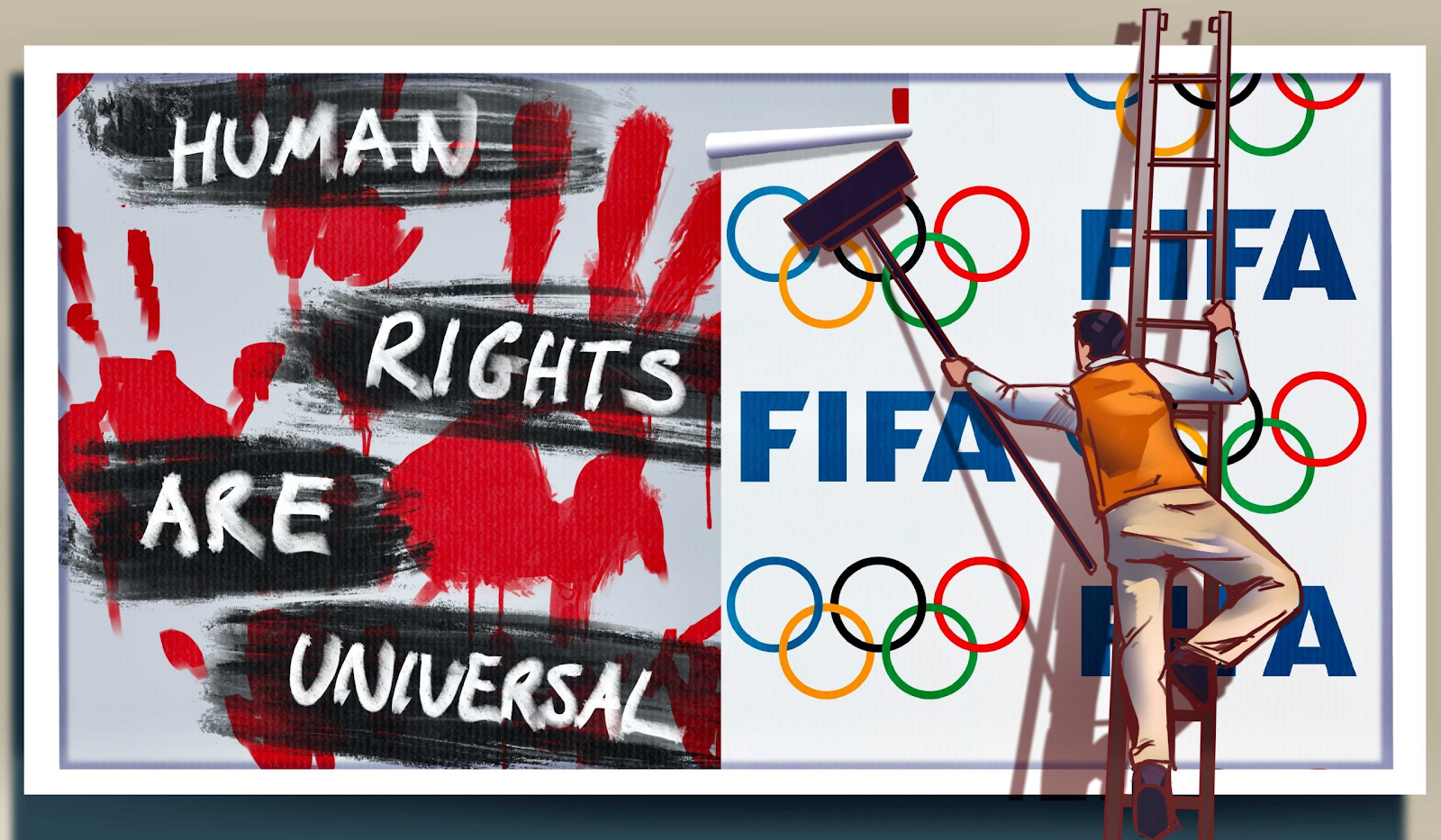Sportswashing is the practice of an individual, group, corporation, or nation-state using sport to improve their tarnished reputation, through hosting a sporting event, the purchase or sponsorship of sporting teams, or by participation in the sport itself. At nation-state level, sportswashing has been used to direct attention away from a poor human rights record and corruption scandals within government
People from nations accused of sportswashing often argue that they simply want to enjoy sporting events in their home nations and that sporting boycotts and event re-location are both unfair on sporting fans and ineffective in changing government policy.
Sportswashing is considered a potentially costly form of propaganda. For example, In March 2021 human rights organization Grant Liberty said that Saudi Arabia alone has spent at least $1.5 billion on alleged sportswashing activities.
Sportswashing isn't a new problem. In fact, it's one of the oldest tricks in an autocrat's international relations playbook. Students of European history probably remember Adolf Hitler's reasons for hosting the 1936 Olympic games.
Does it work ? The takeover of Newcastle United by a Saudi Arabian sovereign wealth fund has been labelled a classic example of sportswashing, but will the deal really improve the country’s reputation? For one thing many football fans who may have been ignorant of charges against the Saudi government may now be aware of them for the first time. The so called Streisand effect
Even tough we might ask "if Newcastle United start winning trophies, will the conversation continue to be about human rights in Saudi Arabia?” But in general it is almost impossible to measure how effective, or not, attempts at sportswashing are.
Fundamentally, sportswashing is a bet that fans can be bought off by the allure of glamorous stadiums and big-name sports clubs, and ignore the human rights violations that lie behind that façade. While we might not be able to fully take back control of sports any time soon, it is imperative for athletes and their fans to use their power to redirect the spotlight towards those crimes against humanity, and make the bet a losing one for undemocratic regimes.



No comments:
Post a Comment